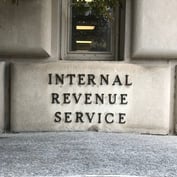What You Need to Know
- OSAM has added a suite of emerging markets and developed markets strategies on its Canvas platform.
- State Street is partnering with Lukka to expand its cryptocurrency asset fund administration capabilities.
- Impact Shares, Aptus Capital Advisors, Timothy Plan and Direxion all have launched new ETFs.
O’Shaughnessy Asset Management (OSAM) has introduced a suite of emerging and developed markets ex-U.S. American depositary receipt strategies on its Canvas custom indexing platform.
The new offering consists of both passive strategies that replicate the market and active strategies that leverage proprietary quantitative research to optimize for risk-adjusted excess return.
“The search for alpha or excess return is leading investors to the emerging markets,” said Patrick O’Shaughnessy, CEO of OSAM in a statement. “Good companies headquartered in developing countries often trade at a steep discount relative to peers in developed countries [and] research demonstrates emerging market companies show higher revenue growth and return on capital.”
He added that emerging markets generally have a low correlation with developed markets, providing diversification for portfolios, and current valuations and spreads in emerging markets indicate investment opportunities.
OSAM uses factor-based strategies to eliminate low-performing companies and stress high-performing companies based on valuation and momentum. Advisors incorporating EM can decide if and how much active or factor exposure they want and further customize the portfolio for environmental, social and governance considerations. They can also optimize after-tax returns in Canvas accounts.
State Street Boosts Crypto Fund Administration Capabilities
State Street Corp. has partnered with Lukka, an enterprise crypto-asset data and software provider, to provide digital and cryptocurrency asset fund administration capabilities for the firm’s private fund clients.
The partnership will help provide clients with collection, standardization, enrichment, reconciliation, processing and reporting related to crypto and other digital assets.
It is State Street’s latest effort in the digital and crypto asset space following the launch of State Street Digital in June 2021 and Lukka’s Series C funding round in December 2020, led by State Street.
State Street will leverage Lukka’s product suite, which includes a proprietary middle- and back-office data management solution, purpose-built for blockchain and crypto-asset data, as well as Lukka’s reference and pricing data.
“Lukka was the ideal partner to help provide these services given their leading position in crypto asset data as State Street continues to add to our growing offering in the digital asset space,” said Jen Tribush, alternatives lead for State Street Digital, in a statement.
Impact Shares Launches Affordable Housing MBS ETF
Impact Shares has launched the Impact Shares Affordable Housing MBS ETF (OWNS), which is designed to help increase homeownership in traditionally underserved communities.
The ETF, which trades on the New York Stock Exchange, invests in agency mortgage-backed securities (MBS) backed by pools of mortgage loans made to minority families, low- and moderate-income (LMI) families, and/or families that live in persistent poverty areas and seeks to help increase homeownership for these traditionally underserved communities. Its net expense ratio is 0.30%.
“Decades of economic inequality and discriminatory homeownership policies have created a prominent racial wealth gap,” said Marvin Owens, chief engagement officer at Impact Shares, in a statement. “The Black homeownership rate is approximately 45%, the lowest of all ethnic and racial groups in the nation. “









 August 02, 2021 at 10:59 AM
August 02, 2021 at 10:59 AM











